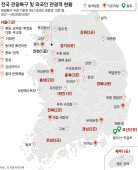Legislation against hate speech
"I disapprove of what you say, but I will defend to the death your right to say it." This statement is often quoted to emphasize the freedom of speech. It is known that French Enlightenment philosopher Voltaire said that. In fact, however, he never said that. In a February 1770 letter to M. le Riche, he wrote, "I detest what you write, but I would give my life to make it possible for you to continue to write." Even in the West, where freedom of speech of broadly guaranteed, restricting hate speech is highly controversial.
The key point of the liberalist spirit in the First Amendment of the U.S. Constitution calls for not oppressing different opinions that one dislikes in the name of law. The right to mock, ridicule and lampoon others is an important element of freedom of expression. However, many Western countries, including the U.S. and Britain, have laws that regulate advocacy of hatred based on nationality, race or religion. In Western society, however, two opposing views collide that hate speech should be regulated by law and that freedom of making hate speech.
The main opposition New Politics Alliance for Democracy (NPAD) is seeking to enact a law restricting hate speech based on political ideology and regional discrimination. At a forum held at the National Assembly, opinions were divided due to controversies over the violation of freedom of expression. Kang Ki-jung, the NPAD`s chief policymaker, said that the proposed law is aimed at preventing harsh languages used by both the conservatives and the progressives. However, he also said that politicians should not resort to regionalism or ideological offensives in elections, hinting that he has next year`s general elections in mind.
Europe experienced a genocide based on hatred against the Jews. Therefore, it restricts hate speech in the spirit of not tolerating the intolerant. It is anachronistic for the opposition party to try to make a law banning hate speech, if not a more universal law that would prohibit discrimination. Those who make hate speech that goes over the line can be punished with the insult law or libel law. Is the opposition party qualified to seek to make such a law at a time when it is suffering from public criticism for harsh languages used by some of its lawmakers.
tao4@donga.com
Headline News
- N. Korea redefines S. Korea as ‘hostile state’ in revised constitution
- Samsung develops graphic DRAM with industry-leading capacity and speed
- Three questions allegedly leaked via text message during Yonsei Univ. essay test
- China to inject 340 trillion won in loans to support real estate sector
- Dodgers beat Mets to take 2-1 lead in NLCS







